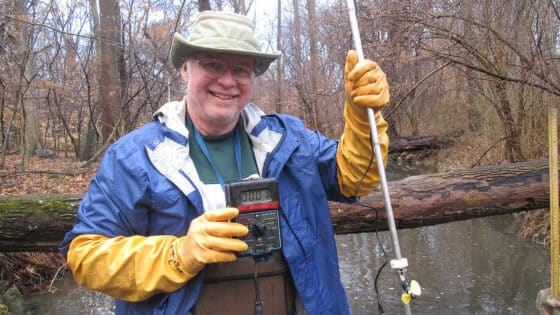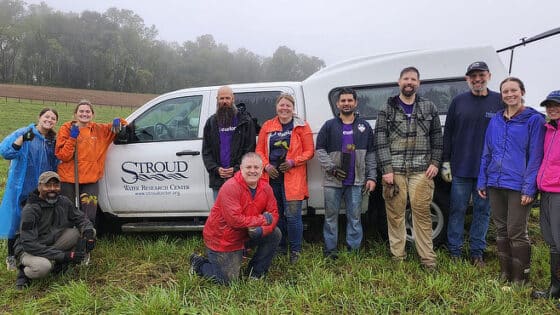It’s challenging to limit plastic use in normal circumstances, but it’s nearly impossible to do during a global pandemic, as Stroud Water Research Center staff discovered this July. To celebrate Plastic Free Month, the Stroud Center participated in a Plastic Free Challenge that required staff to limit, if not eliminate, single-use plastic from their households and lives.

Birds may find creative uses for them but let’s all do our best to reduce — or better yet, eliminate — our consumption of single-use plastic.
One half of a point was awarded to staff members who refrained from using any single use plastic for that day, and an entire point was deducted for every instance of plastic use. The points were added up each week by the staff members themselves and recorded on a combined spreadsheet.
The obstacles of living plastic-free were immediately recognized by staff members, and tips and tricks were traded between one another. Favorite foods and brands were skipped, plastic wrap and aluminum foil were swapped for beeswax wraps and freezer paper, and disposable plastic lunch containers were traded for reusable and disposable non-plastic lunch containers that kids love.
The final scores demonstrate how challenging it is to truly live without plastic; with the entirety of the staff scoring in the negative at the end of the month, part-time educator Suzan McLaughlin was named the winner of this year’s plastic challenge with -4 points in total. Here are some of her suggestions for anyone looking to limit their plastic use in the future:
“July was a good month for me, because I could shop at farmers markets and stands where I brought a large basket to carry food out,” McLaughlin said. She also purchased smaller reusable bags for produce to use alongside her larger reusable grocery bags, as McLaughlin always tries to purchase loose produce rather than prepackaged.
“I try to choose glass bottles and waxed cardboard juice containers over plastic when possible,” McLaughlin adds, “and I limit my use of meat.” McLaughlin shops at local businesses whenever possible, as small businesses “tend to walk a little lighter on the planet.”
Take Action
- The take-home message from the 2019 Joan and Dick Stroud Memorial Lecture was that we have more power than we realize — consumer choices can combat microplastic pollution.
- Looking for alternatives to single-use plastic cups? Visit our shop for ceramic travel coffee cups and stainless steel pint cups.

 By
By 

